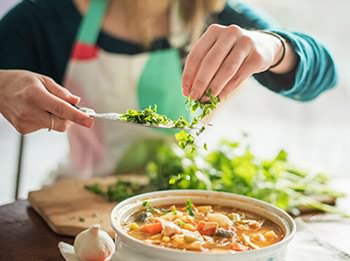 Some folks want to lose weight super fast because they need to lose weight in 2 weeks in order to fit into a new dress. Others know they need to speed up their weight loss in order to stay motivated.
Some folks want to lose weight super fast because they need to lose weight in 2 weeks in order to fit into a new dress. Others know they need to speed up their weight loss in order to stay motivated.
The key to this is to lose weight naturally with a proper diet strategy, and perhaps, the help of some natural diet supplement pills and a sensible weight-loss routine.
Do Diet Pills Work?
There are pills that can help you lose weight fast. Be wary of pills that contain lots of stimulants because they can cause anxiety.
Alli, an FDA approved diet pill, actually reduces the amount of dietary fat that you digest, so it might help. You can buy it over the counter, or you can get a stronger version by prescription. The over-the-counter version may work out cheaper and will probably be enough to help.

However, if you have enough budget, natural weight loss supplements or hcg drops may work better for some people.
We cover them all here.
Diet To Lose 10 Pounds In Two Weeks
This is a natural weight-loss strategy that should work for most people. The important thing is to keep your tummy feeling full while you are reducing the amount of digestible food that you consume. The key to this is eating a lot of fiber and drinking a lot of water.
Here’s what fiber does for you:
1. It helps you feel more full with the same amount of food.
2. It keeps food moving faster through your digestive system.
3. It keeps you from digesting as much of the food that you do consume.
Also, food that is high in fiber also is usually packed with a lot of vitamins and minerals that your body needs. To concentrate on eating more fiber to diet naturally, try these tips:
- Concentrate on getting some of your daily protein from legumes, seeds, and nuts. Some good seed choices are chia, flax, and sunflower.

- Eat six to seven servings of fruit and vegetables a day. Any produce is fine, but you will probably enjoy your quick-weight-loss diet more if you concentrate on varying your diet.

- Remember to drink a lot of water because your body will need more water to process the additional fiber. Some produce is naturally high in water content, so that helps too.

Perform A Correct Exercise To Lose Weight Fast
Exercise is really key to losing weight super fast. The right exercise really depends upon your condition and what you have available to you. However, these are some suggestions to include:
- Light weights: This helps build muscle and boosts up your metabolism.
- Aerobic exercise: Walking/running, riding a bike, or swimming are good choices to make sure your heart gets some good exercise and stays strong while you diet. Triathlon is one of the most effective exercises when you already in this diet game.

Some of good exercise programs have also been designed by several trainers and experts. Most importantly, all can be done at home.
How To Eat To Lose Weight Faster
Most people suggest getting the most of your daily calories in by suppertime. In fact, the largest meals should be by lunch. It may also help to eat five or six smaller meals a day instead of three. Alternatively, you could just eat three moderate meals and include a couple of generous and healthy snacks.
You can use our Diet Calculator to define your daily calorie needs.
The point to remember is that you need to eat enough to keep from feeling hungry, but you need to eat the right kinds of food too.
Suggested Daily Meals For Losing 10 Pounds In 2 Weeks
These are some suggestions for your super fast weight loss:
1. Breakfast
- 2 eggs
- Fruit Salad
- Coffee or tea
2. Morning Snack
- 1 Oz sunflower seeds
- Piece of fruit
3. Lunch
- A generous vegetable salad with light dressing
- Top the salad with a lean source of protein like low-fat cheese or lean meat
- Small cup of chile with beans
4. Afternoon Snack
- 1 Oz. of nuts or peanuts
- A handful of carrots
5. Dinner
- Bean soup
- Chicken and vegetable stir fry
6. Evening Snack
- A Light smoothie made with 1/2 banana, 3 carrots, 1 packet stevia sweetener, and 1 tablespoon of chia seeds
That’s right, if you have to eat after supper, you should probably try to make your snack one that is high in fiber and made out of liquid. Make sure you follow a similar meal plan through the day and keep drinking water to keep from getting dehydrated or backed up in the bowels.
Can This Diet Help You Lose Weight Fast?
This diet is healthy, provides you with nutrition and protein, and should be the key to your super fast dieting success. The reason that it helps you lose 10 pounds fast is because it satisfies your body’s need for nutrition and your tummy’s need to feel full.
The best way to lose 10 pounds or 100 pounds is to consume a healthy diet, pile on the fiber, get a sensible amount of weight-loss exercises, and stick to the plan!




